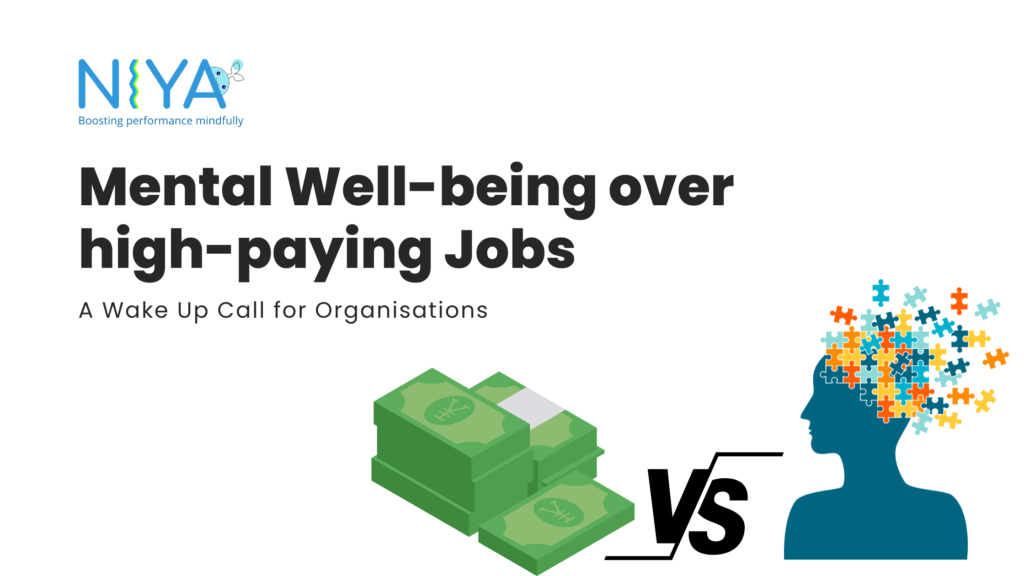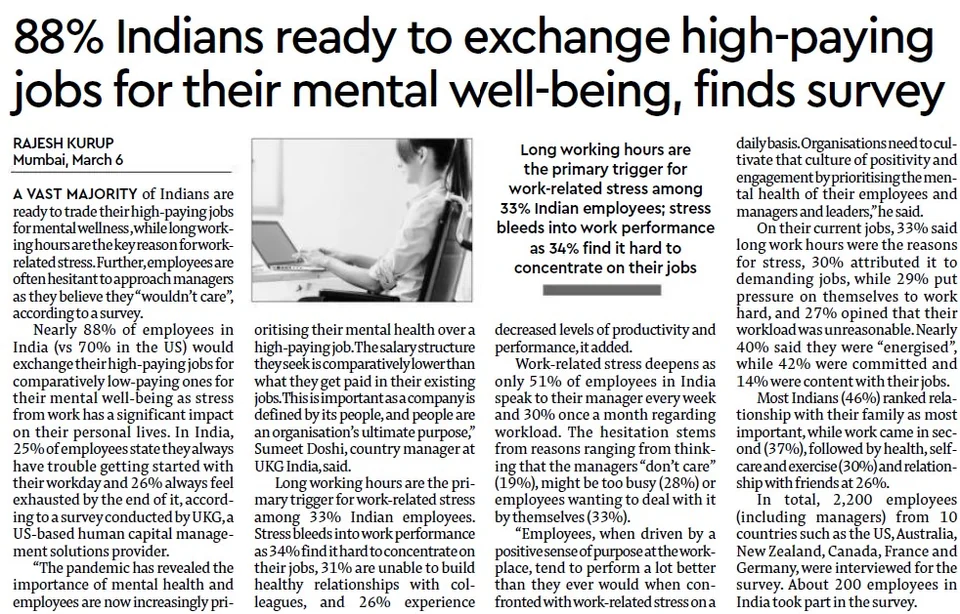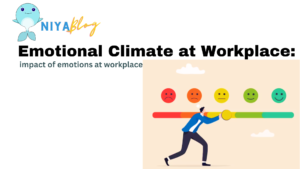
It is time to face the music and acknowledge the havoc that is being wreaked upon our minds and bodies in the name of success. For too long, organisations have turned a blind eye to the impact their actions have on their employees’ mental health, dismissing it as a necessary sacrifice for the bottom line. But let me ask you this – is it truly worth it?
Imagine a vehicle running on an empty tank of gas, sputtering and coughing its way to the finish line. That is precisely what is happening to our minds and bodies, constantly being pushed to the brink of exhaustion and burnout, only to be fueled by the fleeting moments of achievement. We are mere machines in the name of progress, with the fuel gauge of our mental health steadily plummeting.
It is a nostalgic thought, to imagine a time where companies cared about their employees as much as they cared about their profits. A time where mental well-being was a priority and not a secondary concern.
And yet, we find ourselves in a world where mental health statistics are more alarming than ever before, and the cause of it all is often right in front of us – a workplace that ignores the importance of mental well-being.
Let’s face the elephant in the room first:
Did you know that India is responsible for almost 15% of the world’s mental health burden, according to the World Health Organization?
But it’s not just the individuals who are affected. A recent survey by Deloitte found that poor mental health among employees costs Indian employers a staggering Rs 1.1 lakh crore ($14 billion) each year!
That’s a hefty price to pay for neglecting the mental well-being of the workforce.
Let’s break it down even further.
- The cost of absenteeism alone is around Rs 14,000 crore ($1.9 billion), and that’s just scratching the surface.
- Presenteeism, where employees show up to work but aren’t fully engaged due to mental health issues, costs around Rs 51,000 crore ($6.6 billion).
- And to top it all off, the cost of employee turnover due to poor mental health is a whopping Rs 45,000 crore ($5.9 billion).
Wait! There is more!
Here’s a surprising finding from a recent survey by UKG – a majority of Indians would actually prefer to take a lower-paying job if it meant better mental health and less stress! Can you believe it? According to the survey, a staggering 88% of Indian employees would be willing to ditch their high-paying jobs in exchange for better mental well-being.
And it’s not just India. The survey also found that 70% of employees in the US would do the same. It seems like people all around the world are waking up to the importance of mental health and recognizing that money isn’t everything.

So, what does this mean for organisations?
It’s a clear sign that prioritising mental health in the workplace is not just the right thing to do, it’s also good for business. Employees who feel supported and valued are more likely to be productive, engaged, and loyal. And, as we saw earlier, the cost of neglecting mental health can be astronomical.
Let’s take a cue from these survey results and make mental well-being a top priority. It’s time to create a workplace that values people over profits, and recognizes that a healthy mind is just as important as a healthy paycheck.
But before we head on the tips that organisations can use to change the narrative, let’s break down the culture of high paying jobs and what it is costing you.
The Culture of High-Paying Jobs
Welcome to the world of high-paying jobs, where the pursuit of wealth and success can come at a great cost. As an organisation, it’s crucial to recognize the impact that this culture can have on your employees’ mental well-being. Let’s dive in and explore the three key aspects of the culture of high-paying jobs: the definition, the pursuit, and the toll.
A. Definition of High-Paying Jobs
High-paying jobs are those that offer significantly higher salaries than the national average. These jobs are often in fields like finance, law, medicine, or technology, and are typically associated with prestige, power, and status.
B. The Pursuit of High-Paying Jobs
The pursuit of high-paying jobs can be all-consuming, leading many employees to work long hours, neglect their personal lives, and sacrifice their mental well-being. It’s easy to get caught up in the race for success, but at what cost?
Think of it like running a marathon. Sure, you may be able to push yourself to sprint ahead of the pack and cross the finish line first, but what toll will it take on your body? The same can be said for the pursuit of high-paying jobs – sure, you may be able to land that prestigious position with a six-figure salary, but at what cost to your mental health and personal life?
C. The Toll on Mental Well-being
Unfortunately, the culture of high-paying jobs can take a significant toll on mental well-being. The pressure to perform at a high level, the long hours, and the sacrifices made in the pursuit of success can all lead to burnout, anxiety, and depression.
It’s like a pressure cooker – the heat is turned up higher and higher until something has to give. Without proper support and resources, employees can become overwhelmed and suffer from mental health issues that not only affect their work but also their personal lives.
The Cost of Neglecting Mental Well-being
It’s time to talk about the elephant in the room – the cost of neglecting mental well-being. As a society, we often overlook the importance of mental health, but the statistics speak for themselves.
Let’s take a closer look at the impact that neglecting mental well-being can have on job performance and overall well-being.
A. Mental Health Statistics
Did you know that globally, depression and anxiety lead to an estimated 12 billion lost working days every year? That’s a staggering number, and the cost of this lost productivity is estimated at a whopping US$ 1 trillion per year.
In fact, India is expected to suffer economic losses of US$ 1.03 trillion between 2012-2030 due to mental health conditions alone.
Neglecting mental well-being not only affects individual employees but also has a significant impact on the organisation’s bottom line. When employees are struggling with mental health issues, they may find it challenging to focus, complete tasks on time, or work efficiently. This can lead to a decline in productivity and a negative impact on team dynamics.
It’s like a domino effect – neglecting mental well-being can lead to lost productivity, which can lead to financial losses for the organisation. That’s why it’s essential for organisations to prioritise mental health and provide resources and support for employees.
B. Effects on Job Performance
Neglecting mental well-being can have a significant impact on job performance. Employees who are struggling with mental health issues may find it challenging to concentrate, make decisions, or complete tasks on time. This can lead to a decline in productivity, an increase in absenteeism, and a negative impact on team dynamics.
It’s like trying to drive a car with a flat tire – you may be able to move forward, but it’s going to be a bumpy and inefficient ride. The same can be said for job performance – neglecting mental well-being can make it difficult to operate at peak performance and can lead to significant roadblocks.
C. Effects on Overall Well-being
Neglecting mental well-being can also have a significant impact on overall well-being. Mental health issues can affect all aspects of life, including relationships, hobbies, and personal growth. Employees who are struggling with mental health issues may feel isolated, overwhelmed, and unable to enjoy life outside of work.
It’s like carrying a heavy weight on your shoulders – it may be manageable at first, but over time, it can become too much to bear. Neglecting mental well-being can lead to a decline in overall quality of life and can make it challenging to find meaning and purpose outside of work.
Promoting Mental Well-being in the Workplace

A) Identifying stressors in the workplace:
Just like how a doctor diagnoses a patient’s illness by identifying symptoms, it’s crucial to identify stressors in the workplace to promote mental well-being.
It could be a heavy workload, a toxic work environment, lack of recognition or communication issues. Once identified, organisations can work on reducing or eliminating these stressors to promote a healthier work environment.
B) Encouraging open communication:
Open communication is like a bridge that connects employees and management. By promoting open communication, employees feel comfortable sharing their concerns and feedback, leading to better problem-solving and trust. It also helps management understand employee needs and provide appropriate support, leading to a positive work culture.
C) Providing resources:
Just like how a first aid kit is essential for a physical injury, providing mental health resources is crucial for mental well-being. These resources can be anything from access to counselling services, support groups, wellness programs, to self-care tools like meditation and mindfulness apps. Providing such resources shows that the organisation values their employee’s mental well-being and is committed to supporting them.
Choose Niya to Create a Healthier and Happier Workplace
Are you looking for a solution that can help you promote the well-being of your employees?
It all starts with understanding the existing culture and identifying stressors that can impact your team’s mental health. But how do you ensure that every executive and manager is on the same page?
That’s where NIYA steps in. We understand that every individual is unique, which is why we assess the emotional and mental stress levels of your employees and the underlying reasons behind it. With our clinically validated digital tools, specialised coaching, and counselling sessions, we offer hyper-personalised support to each employee.
Our app features chat and video call support, enabling your employees to access help anytime, anywhere. With our holistic, end-to-end customised employee well-being support, you can rest assured that your employees receive the confidential care they need.
The best part?
We provide you with aggregated and anonymized data to help you identify areas that require targeted interventions, improving employee productivity, performance, engagement, and ultimately, your bottom line.
Don’t let workplace stress take a toll on your employees. Choose NIYA to support the well-being of your team and your business.
To Sum it Up
We must create a culture that values human beings over profits, that recognizes the importance of mental health and provides resources to support it.
It is time for a wake-up call, for a shift in priorities, and for a workplace that fuels the mind and body in equal measure. Let us not forget that a well-oiled machine is only as good as the fuel that powers it.
As the saying goes, “You can’t pour from an empty cup.” So, let’s fill our employees’ cups and watch them flourish!
Ready to tackle the cost of mental health troubles head-on? Email your interest on [email protected]. We will schedule a product demo for you.







